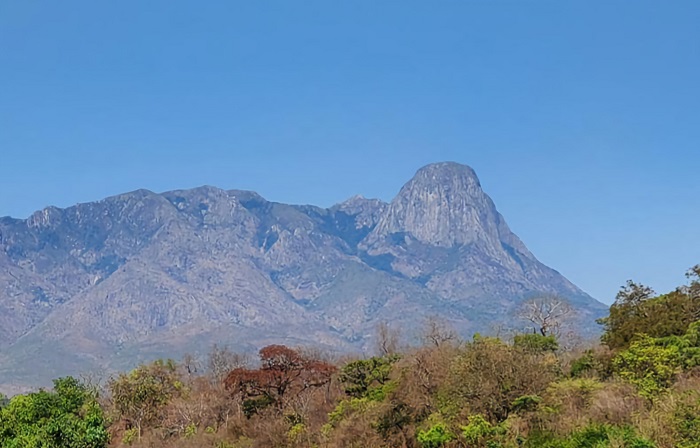Malawi has many untold success stories which, if properly packaged, could help in reversing the negative narratives about the country. Malawi’s competitive advantage is evidenced in its rich natural resources, potential in tourism and hospitality as well as its rich culture and friendly people. That is the very reason Malawi enjoys the accolade of being the Warm Heart of Africa!
Take, for instance, the beautiful Mulanje Mountain, which is renowned for the Mulanje Cider. Of course, not to mention the tea plantations that grace the foot of the mountain. And don’t forget its twin sister Mount Michesi’s rich history. These are but many untapped tourist places of attraction which, if promoted, could boost Malawi’s tourism.
It is, therefore, pleasing to note that there are patriotic Malawians who visit such tourist places of attraction and share their experiences. One such Malawian, who immediately comes to mind, is Dr Ken Lipenga, a renowned politician, seasoned journalist and fortified creative writer as well as an avid mountain climber and hiker.
Lipenga has, over the years, taken us through an epic and exploratory journey of Michesi and Mulanje mountains and many other places of attraction. Using his prowess as a journalist and wordsmith, he has subtly documented his adventures and shared these captivating stories from both historical and tourism perspectives. In one of his adventures, he has narrated how the Arabs used the Mpata road, which passes between Mulanje and Michesi Mountain, as a slave trade route. He invokes the memories of slave trade by painting an imaginary, but traumatic, picture of the slave caravan – how the chained and yoked men, women and children, depicted as tired, thirsty and hungry, “wailed loudly in pain as they staggered and stumbled along the narrow trail of tears”.
His tales about the spirits of Anamwansepwani have remained a mystery to many. And his expeditions to Mount Michesi’s secrets of the seven are quite captivating. Most of us never knew that there is the magnificent Mpoto Lagoon in this part of Phalombe.
What is even more impressive about this charismatic man from Phodogoma Village in Phalombe is his passion for uplifting the lives of the less privileged. He has used his mountain hiking skills to raise funds for the less privileged, as evidenced from his call for support towards Nazombe School for the Blind. By the way, this school has produced music legends like Micheal Yekha and Allan Namoko. The school also lies within the area which was occasioned by Cyclone Freddy last March. How the almost-forgotten cyclone survivors are currently coping up is a story for another day.
That is probably the reason Lipenga could not hide his frustration when he received a lukewarm response on his request for support to the school. In his recent post on Facebook, entitled the ‘Pilgrimage to the Seven’, he writes:
“But why National Bank of Malawi plc? Why have I given them the privilege of shining on top of the favourite peak of the mountain spirits, the Seven on Mt. Michesi? The answer is that National Bank of Malawi has made a gesture that gives the children of the Nazombe School for the Blind a fighting chance in life.
“I wrote to several corporate chief executives. I politely invited their companies to accompany me on my next exploration expedition. Not by physically hiking with me, but by helping with a problem faced my friends, the children of the Nazombe School for the Blind. They desperately needed new braille machines. None of them replied.
“Corporate entities don’t really have to reply. They don’t owe us anything. But I belong to the old-fashioned school where big entities do reply to such letters, even if to say, ‘Sorry we don’t do this sort of thing’. Reply even if the answer is negative. It’s called courtesy.
“Companies are busy. Helping blind children or those with albinism may not shake hearts in the boardroom. But I still think they should have someone to reply to us, lesser mortals. Just say ‘no, we’re not able to help’. But no one replied. Ata. No one, that is, EXCEPT for National Bank plc.”
Lipenga’s sentiments may not be an isolated case. Oftentimes, requests of this nature usually don’t elicit positive feedback from most corporate entities. There is a tendency of thinking that supporting causes of this nature would not earn them any headlines. Fortunately, amidst all this, there are some, like National Bank plc, who have a heart to help.
Corporate social responsibility is voluntary; meaning that companies may not be not obliged by law to provide support. However, other than simply throwing such requests into the dustbin, a polite reply could help uplift the spirits of those in need. Companies would simply be demonstrating that they care, even when they don’t give. Oh, sorry I digressed.
The point I am driving home is that courtesy is important, more especially to those companies that value their image and reputation. Tiziyamba ndife Amalawi, Ipatse Moto!













